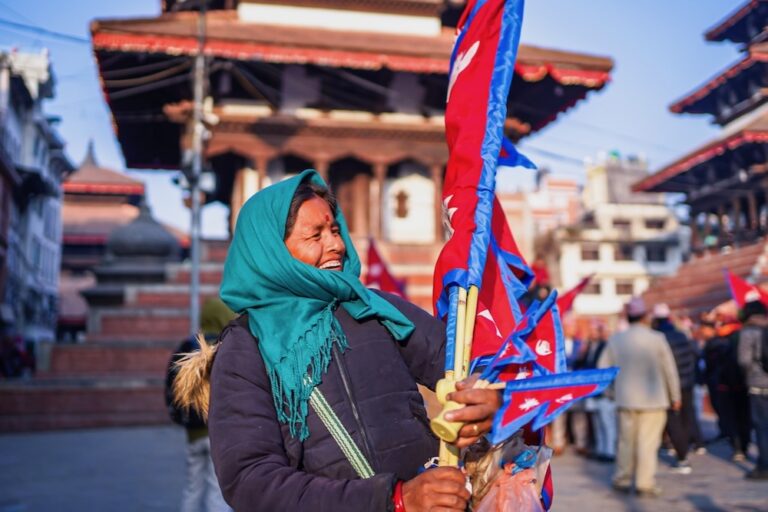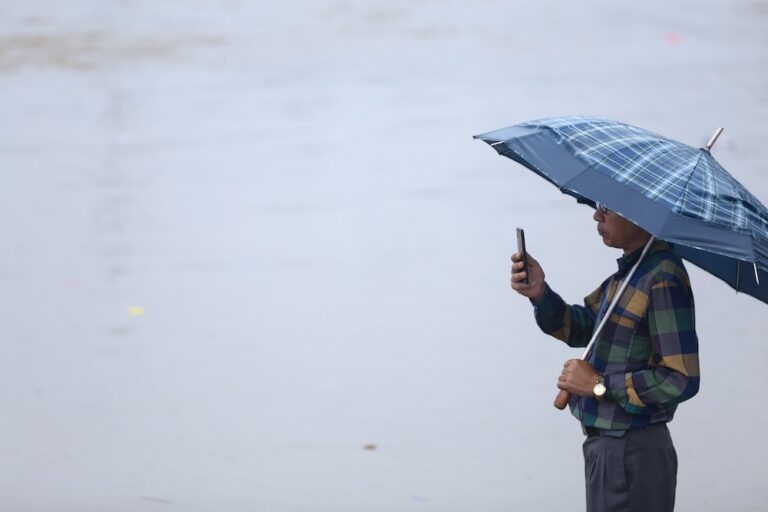(CEHURDES/IFEX) – On 21 March 2003, the authorities released journalists Maheswar Dahal, Ram Karki “Parth Chhetri”, Sangita Khadka and Binod Dahal. This followed a 21 March Supreme Court verdict. Maheswar Dahal and Chhetri, who are affiliated with “Nepali Aawaj” newspaper, published in New Delhi, were arrested in New Delhi on 11 July 2002 and detained […]
(CEHURDES/IFEX) – On 21 March 2003, the authorities released journalists Maheswar Dahal, Ram Karki “Parth Chhetri”, Sangita Khadka and Binod Dahal. This followed a 21 March Supreme Court verdict.
Maheswar Dahal and Chhetri, who are affiliated with “Nepali Aawaj” newspaper, published in New Delhi, were arrested in New Delhi on 11 July 2002 and detained in the Kathmandu central jail. Khadka, a reporter from “Jana Aawhan” weekly, was arrested on 20 May in Kathmandu, together with journalist Krishna Sen. Sen was killed in detention after being tortured by the security forces (see IFEX alerts of 22 and 16 October, 27 and 8 August, 12 and 2 July, 26 June and 22 May 2002). Peace negotiator Birendra Jhapali received Maheswar Dahal and Chhetri after their release from the central jail.
CEHURDES welcomes the release of Maheswar Dahal, Chhetri, Khadka and Binod Dahal. The organisation urges the authorities to release all remaining journalists in detention and to respect press freedom and freedom of expression.
Background Information
Following the imposition of a state of emergency on 26 November 2001, more than 150 journalists were arrested in different parts of the country. The state of emergency was lifted on 29 August 2002, but more than a dozen journalists remain in detention. Some journalists have reportedly been
physically and psychologically tortured. Several detainees’ whereabouts are unknown. There have been no reports of official charges filed against any of the detained journalists.
The security forces allegedly killed editor Sen in June after torturing him in custody. Maoist rebels murdered journalist Nawaraj Sharma (see alerts of 23 and 22 August 2002), and journalist Ambika Timsina was killed on 12 December by unknown assailants (see alert of 20 December 2002). The rebels also abducted journalists Demling Lama and Dhan Bahadur Roka (see alerts of 11 and 9 April 2002). Lama managed to escape but Roka’s whereabouts remain unknown.
On 4 October 2002, King Gyanendra assumed all executive powers by sacking Prime Minister Sher Bahadur Deuba. Elections scheduled for 13 November were postponed for an indefinite period. On 11 October, the king appointed a government under monarchist Prime Minister Lokendra Bahadur Chand, granting him limited powers.
On 29 January 2003, the government and Maoists rebels declared a cease-fire for the second time. The first cease-fire had been broken in November 2001 after three rounds of talks.
Since February 1996, CPN-Maoist rebels have been fighting to establish a “people’s republic” and abolish Nepal’s constitutional monarchy. More than 7,000 people have lost their lives in the conflict. Nearly half of the victims were killed after the state of emergency declaration.


